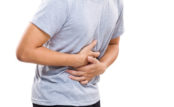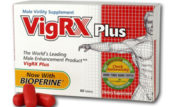 Did you know there’s no word in Japanese for “hot flash”?
Did you know there’s no word in Japanese for “hot flash”?
That’s because, generally speaking, Japanese women don’t get them. They’re also less susceptible to night sweats and several other symptoms of menopause that affect up to 80% of American women, with sleeping problems, heart palpitations, anxiety and irritability often to follow.
Yet only 5% of Japanese women get hot flashes. So what’s the difference?
Diet, for one, is a major reason why Japanese women, and Asian women in general, experience substantially fewer menopause symptoms. Consider that Japanese cuisine is high in soy-based foods, which have been of interest for years for their ability to reduce hot flashes and make the event of menopause a lot more manageable.
Whether you’re a soy fan or you’re concerned of the back and forth studies that claim it may increase risk of breast cancer, (with current evidence suggesting this is a myth), it’s important to step back and look at diet, lifestyle tips and even an encouraging new alternative treatment that may be an effective, yet safer alternative to hormone replacement therapy.
What’s a Hot Flash?
The most common symptom of menopause in the United States, a hot flash is a sudden feeling of intense heat. Sometimes accompanied with profuse sweating and reddening of the head and neck or chest, the related symptoms are called night sweats or a hot flush.
Researchers have yet to pinpoint the biochemical root of hot flashes. We do know they’re caused by dilation of the blood vessels just underneath the skin, which may cause the body to perspire. This often happens at night, making night sweats a common source of sleeping problems for peri- and post-menopausal women.
Hot flashes tend to first appear in a woman’s thirties, with the most severe symptoms within the first two years of post-menopause, when estrogen levels dip beyond a certain point. Sleeping disturbances usually improve about three to six months after hot flashes begin.
Hot flashes usually taper off with time. Some women experience greater severity than others, however, and in rare cases, they can remain persistent for life.
What to Do About Hot Flashes
Like many ailments of the human biology, hot flashes can be unique to each patient. However, some of the most common triggers of hot flashes include stress, caffeine, alcohol, spicy foods, tight clothing, heat and cigarette smoke.
On the last point, smokers are more likely to report greater frequency and severity of hot flash symptoms.
When they do occur, you may find hot flashes more manageable with the following health tips:
Stay Cool – Keep your environment cool. Use a fan in your bedroom during the day and consider leaving it on at night. Wear light fabrics like cotton.
 Dress in Layers – Wear layers that you can easily shed in the event that your symptoms flare up.
Dress in Layers – Wear layers that you can easily shed in the event that your symptoms flare up.
Breath Slowly – Calm your inner being with slow, deliberate breathing, at six to eight breaths per minute, using your abdominal muscles. Do this for 15 minutes in the morning, again in the evening and when your hot flashes begin.
Exercise – Among the many benefits of exercise? You can reduce hot flashes with regular walking, swimming, cycling and dancing. Some women also find that yoga can make life more bearable when hot flashes occur.
Use a Cooling Pillow – You might find it more comfortable to sleep with a chill pillow to keep your head cool at night.
Try a Natural Supplement For Women – A natural libido supplement like Provestra may reduce hot flashes because it’s formulated with black cohosh, which contains a compound, fukinolic acid, that encourages estrogen-like activity within the body.
Don’t confuse a natural female supplement for hormone replacement therapy (HRT), which is a drug linked to a variety of health issues, including blood clots, gall bladder inflammation and possibly even breast cancer.
A natural female supplement contains no hormone. Instead, it’s designed with herbals and amino acids that infuse key nutrients that help to address the shifting hormones that may reduce sex drive during menopause.
Women who’d prefer to reduce hot flashes naturally might also try flaxseed and evening primrose oil, though don’t try the latter if you’re currently taking certain medications, like blood thinners, Speak with your doctor first.
And those long-standing rumors of soy being a good natural treatment for hot flashes?
Soy products contain plant-based estrogens, called isoflavones, that are believed to have weak estrogen-like effects that may reduce hot flashes. Studies continue, with some evidence in their favor and others that claim it has no effect. If soy is an effective treatment for hot flashes, soy foods are likely more effective than supplements.
Foods That May Reduce Hot Flashes
Again we return to that striking statistic: up to 80% of American women suffer hot flashes. Japanese women? Five per cent at best.
If there’s a secret to this disparity, it’s diet. Japanese cuisine, with its emphasis on vegetable-based proteins and less focus on animal-based foods, appears to protect against the effects of decreasing estrogen. As well, Japanese cuisine tends to be lower in fat and high in omega-3 fatty acid plentiful seafood.
Consider also that the average Japanese woman consumes about 24 pounds of soy each year. Conversely, American women eat just three pounds of soy, and that’s most often as additives to processed foods.
 Even if you’re not keen to jump head first into the Japanese diet, the evidence is compelling; a diet high in plants, low in meat and with smaller portion sizes can reduce hot flashes in both severity and frequency.
Even if you’re not keen to jump head first into the Japanese diet, the evidence is compelling; a diet high in plants, low in meat and with smaller portion sizes can reduce hot flashes in both severity and frequency.
In particular, try:
Beans – Edible beans, including the oft-promoted soybean, have compounds genistein and daidzein, which have estrogenic properties that can soften the impact of menopause and the hot flashes linked to them.
Tofu – On a similar note, tofu is a paste made from soybean that’s relatively high in both protein and magnesium and calcium.
Cold-Pressed Oils
Nuts and Almonds
Green, Leafy Vegetables
Whole Grains
Finally, there may be another way to reduce hot flashes without so much as touching hormone replacement therapy. And with evidence that points to a 74% reduction in symptoms, it’s a promising development for women the world over afflicted with the routine of hot flashes.
Hypnosis May Reduce Hot Flashes
Forget those images of a doctor with a swinging pocket watch. A new study published in the journal Menopause suggests that hypnosis can substantially reduce the severity of hot flashes and the frequency at which they occur.
In fact, if the study holds any weight, only HRT is more effective, and even then, hypnosis shows comparable results.
The study builds on earlier research conducted by Gary R. Elkins, PhD at Baylor University, in which Elkins found that hypnosis drastically reduced hot flashes and night sweats in female breast cancer patients with treatment-related symptoms. In this new study, the results suggest that it may be effective for a wider demographic.
The study consisted of 187 post-menopausal women with at least seven hot flashes a day. Researchers split the women in two groups, the first of which undertook hypnosis training in five 45 minute weekly sessions. The women were given suggestions of mental imagery – like a cool place – designed to minimize the intensity of their symptoms.
The hypnosis women were also given a recording of the hypnosis induction, and were asked to practice self-hypnosis each day for the duration of the study.
 The second group received the same number of sessions with a clinician, but received no hypnosis training. These women talked about their symptoms instead and received positive verbal reinforcement from the clinicians.
The second group received the same number of sessions with a clinician, but received no hypnosis training. These women talked about their symptoms instead and received positive verbal reinforcement from the clinicians.
Both groups kept a diary to record the frequency and severity of their symptoms. Additionally, all the women wore sensors on their skin to record when hot flashes occurred.
Twelve weeks later, women in the hypnosis group reported 74% fewer hot flashes than the non-hypnosis women. And the sensors showed a 57% reduction for the hypnosis women. The other group? Just a 17% drop in reported hot flashes and a 10% decrease shown by their sensors.
The hypnosis women were also less likely to report sleep disturbances or other daily functions impacted by their hot flashes.
The study results are encouraging for women who’d wisely prefer to skip hormone replacement therapy in favor of a safer, yet effective treatment for hot flashes. Study author Elkins recommends, however that women interested in hypnosis for this purpose seek a qualified practitioner with either the American Society of Clinical Hypnosis or the Society For Clinical and Experimental Hypnosis.




